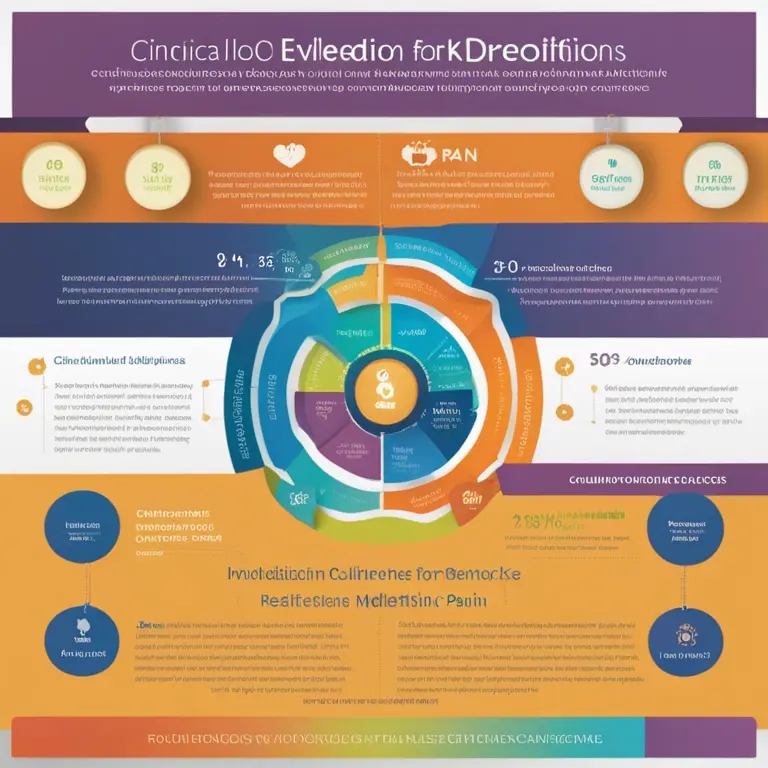
Easing Pain Through Guided Meditation
Discover how meditation can be a potent tool for pain management and relief, fostering a deeper mind-body connection for holistic well-being.
article by Hina Kurosawa
Meditation's Role in Pain Management
Meditation has long been revered for its calming effects on the mind, but its role in pain management has gained traction in recent medical discourse. Transforming the experience of pain through meditation involves a mindful reshaping of the way we perceive and react to discomfort. Pain, often exacerbated by tension and stress, can be alleviated by the relaxation response triggered through meditative practices. The science of pain relief now looks towards meditation as a non-pharmacological strategy, acknowledging its capacity to reduce the cognitive load caused by persistent pain and improve quality of life.

Understanding Pain and Mindfulness
Pain is not merely a physical sensation; it's an intricately woven tapestry of emotions, thoughts, and physical responses. Mindfulness meditation asks individuals to approach pain with a non-judgmental attitude, focusing on breath and bodily sensations. By adopting an observer's stance, we start to disentangle from the personal narrative of pain and notice the impermanent nature of discomfort. A growing body of research indicates that regular mindfulness practice can alter pain perception, dampening the body's stress response and promoting a more serene mental state.

The Process of Meditation for Relief
How exactly does one meditate for pain relief? The process involves finding a quiet space, assuming a comfortable posture, and focusing attention inward. Guided meditations specifically designed for pain relief can facilitate the journey, directing consciousness away from distressing pain signals. Breathing becomes the anchor in this process, with deep, rhythmic breaths serving as a tool to loosen the grip of pain. With time and persistence, meditators often report a diminution in their pain intensity and a newfound sense of control over their body's responses.

Clinical Evidence Supporting Meditation
Clinical studies underscore the efficacy of meditation in managing pain. Techniques like Mindfulness-Based Stress Reduction (MBSR) and Mindfulness-Based Cognitive Therapy (MBCT) have been empirically validated, showing improvements in patients with chronic pain conditions. These findings not only spark hope for those seeking respite from pain but also prompt a shift in how healthcare systems approach pain management. Incorporating mindfulness practices is gradually becoming a standard recommendation alongside conventional treatments, as evidence of its benefits continues to accumulate.

Integrating Meditation into Daily Life
For meditation to wield its pain-relieving power, integration into daily life is vital. This doesn't necessarily entail hour-long sessions; even brief periods of practice can contribute to pain relief. The key is consistency and the intention to cultivate a non-reactive awareness of bodily sensations. Over time, this builds resilience and a more harmonious connection with one's own body. Additionally, meditation apps and online resources have made it easier than ever to access guided sessions, supporting individuals in their quest for pain relief and holistic health.
Final Thoughts on Meditation and Pain
While meditation is not a panacea for all forms of pain, it represents a powerful adjunctive tool that empowers individuals to influence their pain experience. By fostering mindfulness, reducing stress, and promoting relaxation, regular meditation practice can offer genuine relief and enhance an individual's overall well-being. As research continues to reveal the depths of meditation's impact, it stands as a beacon of hope for pain sufferers seeking alternative or complementary ways to manage their conditions.
Published: 1/24/2024
Modified: 1/24/2024
More predictions
Come back here soon to learn more about yourself and your future


Effective Meditation for Contemporary Life
Discover the meditation methods that best suit the fast pace of contemporary life and how they enhance mental and emotional well-being.


Soothing Sleep: Meditation for Restful Nights
Discover effective meditation practices to enhance sleep quality and embrace restfulness in this insightful article.


Meditation Techniques for Individuals With ADHD
Discover effective meditation practices tailored for individuals with ADHD to improve focus, reduce hyperactivity, and foster a sense of calm.